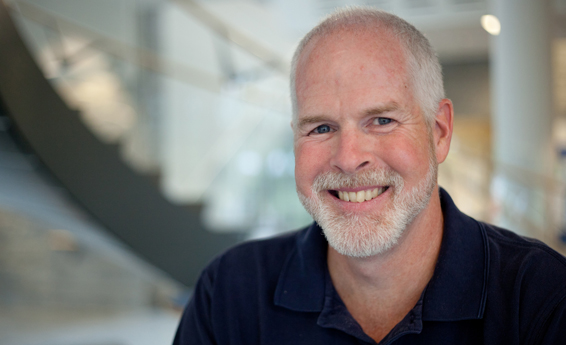New center develops technologies to help youths with disabilities

 Enlarge
Enlarge
A $4.5 million federal grant will allow U-M researchers to study how technology – including apps for smartphones and tablets, cloud devices, an educational web/social media site, and a U-M-developed video game – may help young adults with spinal cord dysfunction and neurodevelopmental disabilities to improve their health and become more independent as they mature.
The five-year grant from the U.S. Department of Education’s National Institute of Disability and Rehabilitation Research has helped to launch the new U-M Rehabilitation Engineering and Research Center, Technology Increasing Knowledge, Technology Optimizing Choices.
The center involves researchers from Computer Science and Engineering, as well as researchers and clinicians from the U-M Health System, College of Pharmacy, School of Public Health, College of Engineering, and the School of Information.
For youth with disabilities, making the transition from parental management of health to self-management and independence can be challenging. The young people often lack knowledge and skills to anticipate and avoid secondary health complications, and they may have impairments in cognition that may also make it difficult to complete the tasks required of them.
Researchers at the center will explore how technology can be used to develop and implement strategies and interventions to address both of these kinds of challenges by supporting and reinforcing healthful behaviors, helping disabled youth to become more autonomous, confident, and successful in life.
The center is led by Director Michelle Meade, Associate Professor of Physical Medicine and Rehabilitation, and Co-Director Edmund Durfee, Professor of Computer Science and Engineering. “Adolescents taking on increased self-management responsibilities will typically lack the life experience needed for anticipating, recognizing, and overcoming regular life obstacles, and these challenges may be magnified during an age when they are transitioning from dependence on parental care,” says Prof. Durfee. “Technology offers new opportunities to develop and implement strategies that can be incorporated into health care practice and improve the lives of individuals with disabilities.”
Prof. Durfee is leading a project at the center under which artificial intelligence technology will be used to augment a young patient’s decision-making abilities in everyday unscripted situations. Disabilities typically reduce a person’s ability to respond to the unexpected, resulting in that person being less willing to engage or potentially leaving them feeling physically or socially inadequate, with possible risk to their health. The project will design and prototype decision-support technologies that augment cognition of inexperienced decision makers to avoid overestimating or underestimating risk so as to maximize safe, positive participation in meaningful activities and life experiences.
CSE Prof. Satinder Singh Baveja is collaborating with researchers from Pharmacy on a project designed to improve health outcomes by encouraging patients to take medication on schedule. The system leverages mobile technology, a novel “smart pill bottle,” and machine reinforcement learning to develop a personalized health communication system that learns from patient behavior and communicates information to the patient in the most effective way.
Mark Ackerman, Professor of Computer Science and Engineering and the George Herbert Mead Professor of Human-Computer Interaction, along with Prof. Mark Newman of the School of Information, is developing a cloud-based socially-based educational system to help persons with spinal cord injuries or disease to acquire self-management skills through a clinician-managed virtual coaching program. The system will leverage state-of-the-art mobile and web-based technology to provide tailorable, context-aware, and adaptive self-management and patient education capabilities, making use of contributions from patients and clinicians.
A number of other projects are underway under the center, including a project led by Prof. Meade in which a downloadable mobile gaming app may improve health behaviors among adolescents with spinal cord dysfunction. In that game, players wake up in rehab, learning they have a spinal cord injury. From there, the game involves trips to doctor’s offices, therapy to build muscle, and tasks such as renewing prescriptions and learning to drive an accessible car. Other challenges include managing rowdy club goers during a night out with friends, hosting an unexpected party, and defeating an evil imposter-psychologist named Dr. Schrync. Within the game, players have to learn how to interact with other people, and how to get information they need in order to progress and eventually save the world.
All projects led by the new center have a goal of transferring the technology to the marketplace to benefit the target community.
 MENU
MENU 
